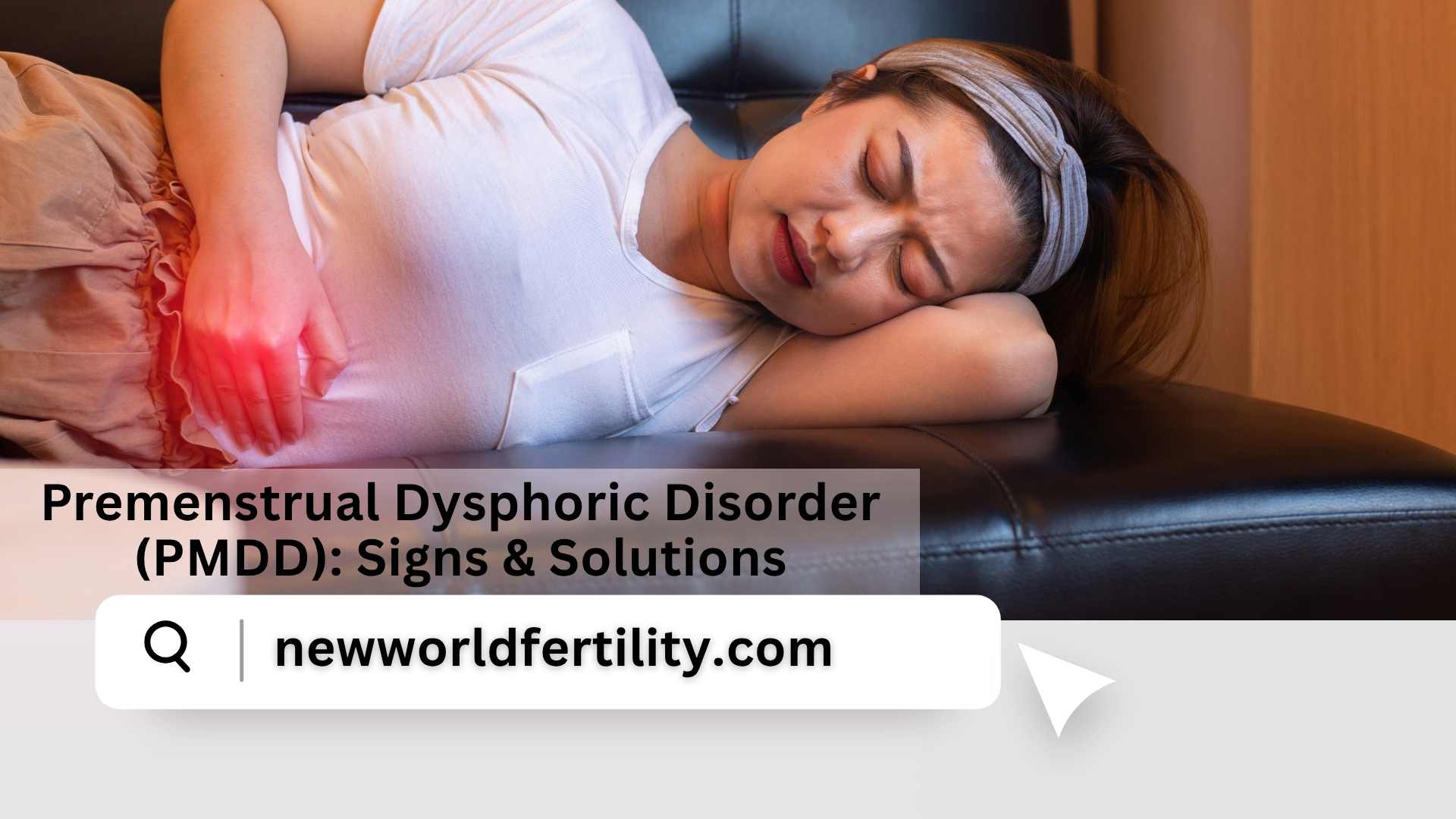Premenstrual Dysphoric Disorder (PMDD) is a severe form of PMS that significantly impacts a woman's emotional and physical well-being. Characterized by intense mood swings, anxiety, and physical discomfort, PMDD can disrupt daily life. Understanding the symptoms, causes, and available treatment options is crucial for managing this condition effectively. At New World Fertility, we provide expert guidance on reproductive and hormonal health, ensuring you receive the best care for PMDD and related conditions.
What is PMDD?
PMDD is a hormone-related disorder that occurs in the luteal phase of the menstrual cycle (after ovulation and before menstruation). Unlike PMS, which causes mild discomfort, PMDD leads to severe emotional and physical symptoms that can interfere with daily life.
Symptoms of PMDD
PMDD symptoms typically appear a week or two before menstruation and subside shortly after the period begins. Common symptoms include:
Emotional & Behavioral Symptoms
Severe mood swings
Depression or feelings of hopelessness
Anxiety or tension
Increased irritability or anger
Difficulty concentrating
Fatigue and low energy
Physical Symptoms
Bloating and abdominal pain
Breast tenderness
Headaches
Muscle or joint pain
Sleep disturbances (insomnia or excessive sleepiness)
Increased appetite or food cravings
Causes & Risk Factors of PMDD
The exact cause of PMDD is not fully understood, but it is believed to be linked to hormonal fluctuations. Some contributing factors include:
Hormonal Imbalance: Sensitivity to progesterone and estrogen changes.
Serotonin Deficiency: Low serotonin levels can affect mood regulation.
Genetic Predisposition: A family history of PMDD, depression, or anxiety.
Chronic Stress: Prolonged stress can worsen PMDD symptoms.
Inflammation: Increased inflammatory markers may contribute to PMDD.
Diagnosis of PMDD
PMDD is diagnosed based on a patient’s symptom history. Medical professionals may recommend keeping a symptom diary for at least two menstrual cycles. Additional tests, such as hormonal evaluations, may be performed to rule out other medical conditions.
Treatment Options for PMDD
PMDD can be managed through a combination of lifestyle changes, medication, and therapy.
1. Lifestyle Modifications
Balanced Diet: Increase intake of whole foods, reduce caffeine, alcohol, and processed sugar.
Regular Exercise: Engage in moderate physical activity to boost endorphins and reduce stress.
Adequate Sleep: Maintain a consistent sleep schedule to regulate mood and hormones.
Stress Management: Yoga, meditation, and deep breathing techniques can help.
2. Medications for PMDD
Selective Serotonin Reuptake Inhibitors (SSRIs): Antidepressants like fluoxetine and sertraline can alleviate emotional symptoms.
Hormonal Birth Control: Some oral contraceptives help regulate hormonal fluctuations.
Gonadotropin-Releasing Hormone (GnRH) Agonists: Used in severe cases to suppress ovarian function.
Diuretics: Reduce bloating and water retention.
3. Natural Remedies & Supplements
Calcium & Magnesium - Help reduce mood swings and bloating.
Vitamin B6 - Supports neurotransmitter function and mood stability.
Herbal Remedies - Chasteberry (Vitex) has shown effectiveness in alleviating PMDD symptoms.
PMDD vs. PMS: What’s the Difference?
When to Seek Medical Help
If PMDD symptoms are severely affecting your personal and professional life, seek medical guidance. A fertility expert or gynecologist can help create a personalized treatment plan. At New World Fertility, we provide expert support to manage hormonal disorders and improve reproductive health.
Frequently Asked Questions (FAQs)
1. How is PMDD different from PMS?
PMDD is a more severe form of PMS, causing intense emotional and physical symptoms that interfere with daily life, while PMS symptoms are milder and manageable.
2. Can PMDD affect fertility?
PMDD itself does not directly impact fertility, but the hormonal imbalances associated with it may contribute to reproductive health challenges.
3. What is the best treatment for PMDD?
Treatment varies for each individual. Lifestyle changes, SSRIs, hormonal therapy, and supplements can help manage symptoms effectively.
4. Can diet help in managing PMDD?
Yes, a balanced diet rich in whole foods, low in processed sugar, and high in nutrients like calcium and magnesium can improve PMDD symptoms.
5. Should I see a doctor for PMDD?
Yes, if PMDD symptoms severely impact your quality of life, consult a healthcare professional for proper diagnosis and treatment options.
Conclusion
PMDD is a challenging condition, but with the right diagnosis and treatment, it can be managed effectively. Identifying symptoms early and seeking professional help can improve the quality of life. If you suspect you have PMDD, consult our experts at New World Fertility for tailored guidance and support.

 Oct-29-2025
Oct-29-2025